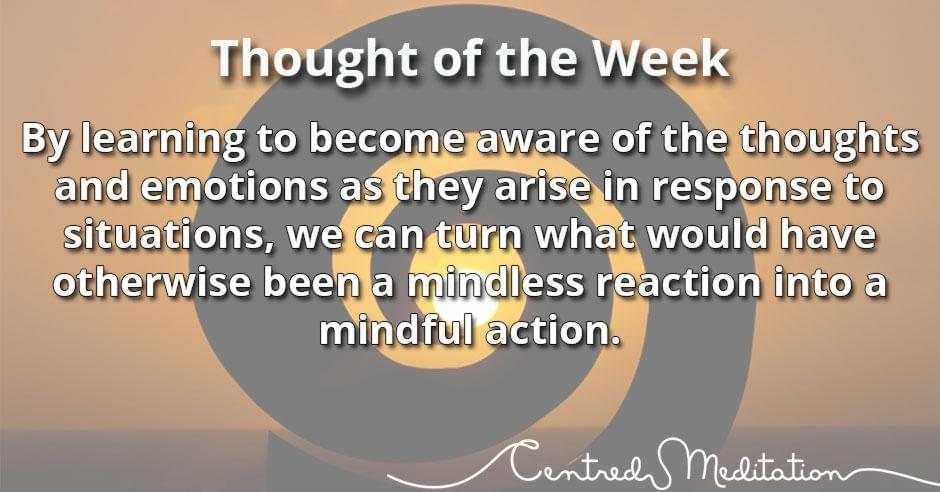We just wanted to start by expressing how grateful we are for your heartfelt response to our newsletter last week sharing something quite personal that we are going through. We were overwhelmed yet comforted by the sheer number of people going through similar experiences and are beyond appreciative that you shared them with us.
In an attempt to constantly improve ourselves, we like to use mindfulness as a tool to cultivate our internal muscle of awareness. By practicing mindfulness, we learn to become aware of the emotions that arise in response to certain situations, and the physical sensations and thoughts that accompany them. We thought we would give you some insight this week into mindfulness in action.
On Saturday, we were meant to meet up with a group of friends of ours. The day wore on and we hadn’t heard anything until late afternoon came and it became apparent that our friends were altogether at someone’s house, and hadn’t let us know. What immediately came up for us was a feeling of being ‘left out’.
Now as we know, no-one can make us feel anything. A feeling happens exclusively inside each of us, and it is entirely unique from person to person. For example, imagine somebody calls two different people ugly. One of them is a supermodel who thinks pretty highly of their looks and isn’t fazed in the slightest by the comment. The other person has struggled with their self-image their entire life and gets utterly offended and upset by the insult. In both scenarios, the comment was the same but whether it was perceived as an insult or not resided exclusively within the individual and their specific context. This is a simplistic example of an automatic chain that happens all day everyday in response to everything we hear. Sometimes it all happens so fast that before we know it, we find ourselves stuck in a rut for a reason we can’t even pick.
Going back to our original scenario from the weekend, there is no reason for us to have felt left out. We are all in close contact and often hang out with one another, altogether and/or individually. We often make tentative plans that don’t always work out. Yet, a feeling of upset had arisen on this particular occasion.
Here’s where mindfulness stepped in.
- First, we identified what emotion had surfaced. In this case, it was ‘pissed off’ meets ‘sadness’;
- Next, we noticed the bodily physical sensations that the emotion translated to. In this case, it was increased heart rate and churning of the belly;
- Now we observed the thoughts that accompanied the emotion. In this case, it was “why would they leave us out….how mean of them….we’ve got other things to do anyway”;
- Here’s the fun part. We began to recognise that these emotions/thoughts had hardly anything to do with the situation itself and everything to do with some non-conscious foundation. You see, the non-conscious mind is thought to be composed of everything we have absorbed from our external environment over the duration of our lives. In other words, when something happens, we automatically respond within a framework from the past. So we simply started to explore situations from our past where we felt left out and what we must have made that mean about ourselves at the time. In this case, we both remember being bullied as kids which no doubt continues to have some sort of lasting effect;
- Knowing this, we were able to take action to confront the situation appropriately and swiftly, without blaming others or getting into a silly fight. In this case, we had an open discussion and found out that indeed it was by accident that they all ended up together and they had simply forgot to let us know.
So we challenge you this week to start to notice when emotions arise and begin to dig deeper into what influences might exist from your past.


